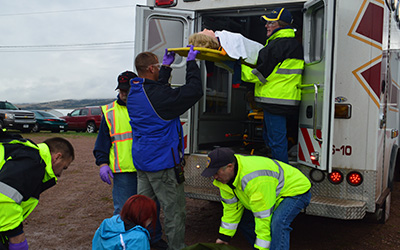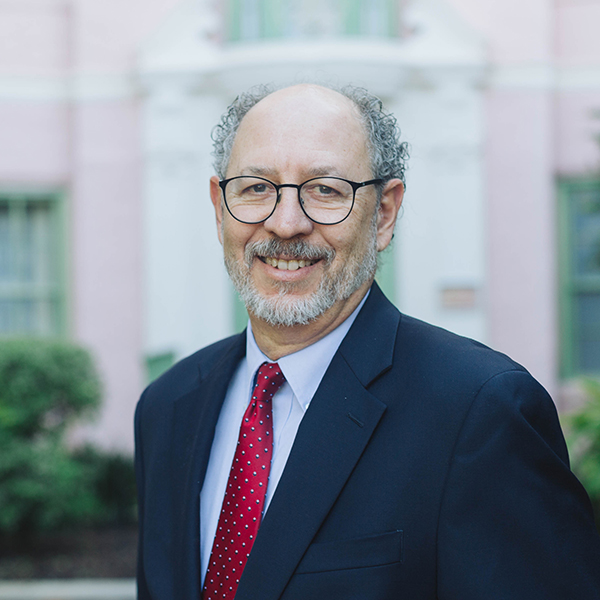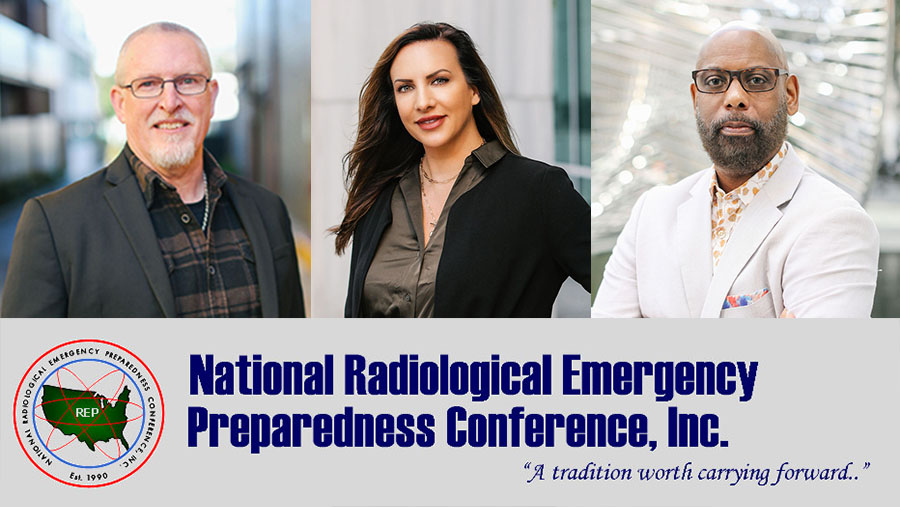No Results Found
The page you requested could not be found. Try refining your search, or use the navigation above to locate the post.

Steve Sugarman originally wrote Early Internal and External Dose Magnitude Estimation in 2008 when serving as the Health Physics Project Manager at the Radiation Emergency Assistance Center/Training Site (REAC/TS), a response asset of the US Department of Energy, to provide general guidance for early estimation of radiation dose magnitude. Although not always possible, every effort was made to write in understandable terms so that the guidance could be used by a wide range of people. The document was posted on the REAC/TS website, and during my time at REAC/TS the document was periodically updated in an effort to keep it current and improve its usability – the most recent update to Early Internal and External Dose Magnitude Estimation being 2017.
In late 2017 Steve left REAC/TS to join SummitET where he is the Vice President of Operations and Corporate Health Physicist. Upon revisiting Early Internal and External Dose Magnitude Estimation, Steve realized new information that may be pertinent to the topic had become available. He then incorporated that information into an undated document: Initial Dose Magnitude Estimation for Individuals Involved in a Radiological Incident/Accident.
Initial Dose Magnitude Estimation for Individuals Involved in a Radiological Incident/Accident isn’t intended to provide methods for definitive dose calculation, but to provide methods one may consider using for initial dose estimation when trying to determine the potential magnitude of the radiation doses to individuals involved in a radiation incident/accident. As with any job, it’s advantageous to have multiple tools available to help with the task, but it’s up to the user to determine if the proper tool is being selected and to apply that tool correctly to any given situation. The tools/methods described in this document are in no way intended to take the place of established/validated internal dose assessment (urinalysis, whole body counting, etc.) or external dose assessment (selection of proper dosimetry, in-depth reconstructions, etc.) techniques, nor are they to be used for regulatory and/or occupational dose assignment. Each situation should be evaluated for the applicability of the described tools with an understanding of the strengths and weaknesses that are inherent in each of them.
This document is intended to provide general guidance and is not a peer-reviewed publication.

Note: The following document builds upon and updates information contained in a document written by Steve Sugarman when he was the Health Physics Project Manager at the Radiation Emergency Assistance Center/Training Site (REACT/TS) entitled “Early Internal and External Dose Magnitude Estimation.” The technical information contained in this update can be used to guide emergency responders, medical personnel, and others in occupational settings to conduct early radiation dose estimations.
The page you requested could not be found. Try refining your search, or use the navigation above to locate the post.


Catalyst | Brian Hartz Summit Exercises and Training LLC (SummitET®), a St. Petersburg-based crisis readiness company, had its work cut out for it like never before during the Covid-19 pandemic. Prior to launching the company in 2014, founder John Duda worked as an...
November 16, 2020 - St. Petersburg, FL. Summit Exercises and Training LLC (SummitET®), a Preparedness Solutions Company®, announces its acceptance into The Society of Human Resource Management (SHRM) Recertification Provider Program. SHRM is the foremost expert,...
November 11, 2020 – U.S. Secretary of Labor Eugene Scalia recognized Summit Exercises and Training LLC (SummitET®), a Preparedness Solutions Company® as one of the 675 recipients of the 2020 HIRE Vets Medallion Award during an award ceremony at the U.S. Department of...


Summit Exercises and Training LLC (SummitET®) experts will be presenting at the National Radiological Emergency Preparedness (NREP) Conference in Nashville, Tennessee from April 11 to 14, 2022.
SummitET offers multi-agency radiological exercises and radiological training for Emergency Planners and field personnel by expert communicators, Health Physicist, and Radiation Safety Experts. Our exercise and training development extends to Communications Experts and the Strategic Communications Institute for PreparednessTM.
Join one of our expert sessions during the 2022 NREP Conference;
During a crisis or emergency, assembling communications staff at a physical JIC may be impractical or unsafe. A virtual JIS/JIC serves the need for timely information gathering and message dissemination in a response by collecting information from responders and communications staff across a wide area to develop essential tools in a virtual setting. Discuss the benefits of pivoting to a virtual JIS/JIC with Holly Hardin and Mark Basnight.
Misinformation is false, but not created or shared with the intention of causing harm, while disinformation is intentionally created to mislead, harm or manipulate a person, social group, organization, or country, and malinformation is based on fact, but used out of context to mislead, harm or manipulate. Distinguishing misinformation, disinformation, malinformation and credible information is critical to stakeholder understanding regarding the impact of the crises and emergencies. Attendees will learn to equip themselves with effective tools, knowledge, and resources that do not impede the free flow of reliable information.
Words have meaning, and subtle shifts in the language we use can have a large impact on the message that’s being delivered and the perceptions of the receiving audience. This is especially important when speaking about topics that may cause anxiety in people…such as radiation. Practice tips from Certified Health Physicist, Steve Sugarman, to effectively communicate the differences between such things as exposure and contamination. While the differences in various concepts may seem simple to a health physicist, they can also be a primary driver in emergency response.
You can also find SummitET experts at the NREP Conference trade show booth #13. Take a quick survey at our booth to win preparedness giveaways including t-shirts and Yeti® cups marked with the SummitET tagline “Preparedness is not an accident®”. Or schedule a sit down with our experts to see how we can help you reach your preparedness goals.
Catalyst | Brian Hartz Summit Exercises and Training LLC (SummitET®), a St. Petersburg-based crisis readiness company, had its work cut out for it like never before during the Covid-19 pandemic. Prior to launching the company in 2014, founder John Duda worked as an...
November 16, 2020 - St. Petersburg, FL. Summit Exercises and Training LLC (SummitET®), a Preparedness Solutions Company®, announces its acceptance into The Society of Human Resource Management (SHRM) Recertification Provider Program. SHRM is the foremost expert,...
November 11, 2020 – U.S. Secretary of Labor Eugene Scalia recognized Summit Exercises and Training LLC (SummitET®), a Preparedness Solutions Company® as one of the 675 recipients of the 2020 HIRE Vets Medallion Award during an award ceremony at the U.S. Department of...

It is important for nuclear power plants and Offsite Response Organizations (OROs) to develop and practice effective strategic communication to meet training and exercise requirements such as:
Response to COVID-19 has presented challenges in meeting training and exercise requirements since many in-person activities are not an option, however, a successful pivot from in-person to virtual engagements will allow nuclear power plants and ORO’s to continue to meet customer’s mission requirements.
To meet regulatory requirements as outlined in 10 CFR 50.47(b)(7); 44 CFR 350.5(a)(7), emergency preparedness and response training and exercise activities are conducted to ensure public education and information meet planning standards and evaluation criteria. Due to the inability of many nuclear power plants and OROs to hold in-person training and exercises, this requirement calls for an alternative approach. According to NUREG-0654/FEMA-REP-1, Rev. 2, “Alternative approaches provide an opportunity for state, local, and tribal governments, applicants, and licensees to meet the planning standards in a manner that is different from what the evaluation criteria recommend…”
These training and exercise solutions enhance strategic communication and address CERC principles such as effectiveness, consistency, and proficiency for a FEMA-evaluated exercise and when communicating technical information to non-technical audiences.
SummitET’s Strategic Communications Program offers exercise solutions and training presented through The Strategic Communications Institute for Preparedness® (SCIP), delivered by experts, including a Certified Health Physicist, with extensive knowledge of the unique challenges presented by a radiation emergency.

To meet regulatory requirements as outlined in 10 CFR 50.47(b)(7); 44 CFR 350.5(a)(7), emergency preparedness and response training and exercise activities are conducted to ensure public education and information meet planning standards and evaluation criteria. Due to the inability of many nuclear power plants and offsite response organizations to hold in-person training and exercises, this requirement calls for an alternative approach. According to NUREG-0654/FEMA-REP-1, Rev. 2, “Alternative approaches provide an opportunity for state, local, and tribal governments, applicants, and licensees to meet the planning standards in a manner that is different from what the evaluation criteria recommend…”
COVID-19 has presented challenges in meeting training and exercise requirements since many in-person activities are not an option, however, a successful pivot from in-person to virtual engagements will allow nuclear power plants and offsite response organizations to continue to meet customer’s mission requirements.
Catalyst | Brian Hartz Summit Exercises and Training LLC (SummitET®), a St. Petersburg-based crisis readiness company, had its work cut out for it like never before during the Covid-19 pandemic. Prior to launching the company in 2014, founder John Duda worked as an...
November 16, 2020 - St. Petersburg, FL. Summit Exercises and Training LLC (SummitET®), a Preparedness Solutions Company®, announces its acceptance into The Society of Human Resource Management (SHRM) Recertification Provider Program. SHRM is the foremost expert,...
November 11, 2020 – U.S. Secretary of Labor Eugene Scalia recognized Summit Exercises and Training LLC (SummitET®), a Preparedness Solutions Company® as one of the 675 recipients of the 2020 HIRE Vets Medallion Award during an award ceremony at the U.S. Department of...